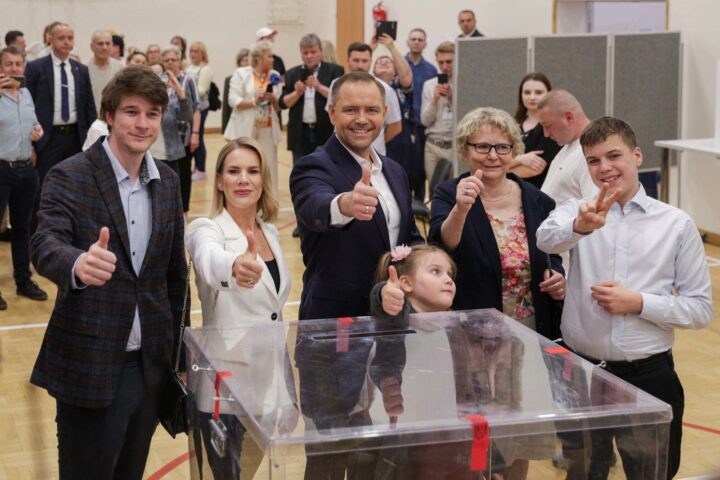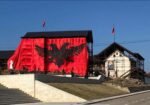Polish President Karol Nawrocki unveiled plans on Monday, August 25, 2025, to restrict Ukrainians’ access to child and healthcare benefits, while also proposing a ban on the glorification of a 20th-century Ukrainian nationalist leader, signaling a tougher stance toward refugees, Reuters reports.
Poland has been one of Ukraine’s staunchest allies since Russia’s invasion in February 2022, but growing domestic concerns about the large refugee population and recurring disputes over the Volhynia massacres of World War II have strained relations. Official data show that around 1.5 million Ukrainians are currently residing in Poland.
Nawrocki, a conservative nationalist inspired by former U.S. President Donald Trump, campaigned on the slogan “Poles First,” pledging to limit foreigners’ rights.
“I have not changed my position and intend to fulfill my commitments. I believe that family benefits should not be given to Ukrainians working in Poland, nor should healthcare benefits,” he told reporters.
Ukrainian refugees currently qualify for a monthly family allowance of 800 zlotys (€180 / $219) per child if the child attends a Polish school. Other EU countries, such as Germany, have also recently proposed cutting similar benefits.
Under Poland’s political system, the president can propose bills and veto government legislation, but the centrist, pro-EU government of Prime Minister Donald Tusk — a critic of Nawrocki — could block his initiatives, setting up a potential stalemate.
In addition, Nawrocki proposed toughening the penal code to explicitly ban public promotion of Stepan Bandera, a controversial Ukrainian nationalist who fought both Nazis and Soviets during World War II.
“This bill should clearly address Bandera, equating him in the penal code with symbols linked to German National Socialism (Nazism) and Soviet Communism,” Nawrocki stated.
For many Ukrainians, Bandera and the UPA are seen as heroes of resistance against Soviet domination. However, in Poland, he remains a deeply divisive figure, remembered for the massacres of Polish civilians in Volhynia (1943–44). Historians note that thousands of Ukrainians were also killed in retaliatory attacks.
Currently, public promotion of Nazi, fascist, or communist ideologies is punishable by up to 3 years in prison under Polish law.







